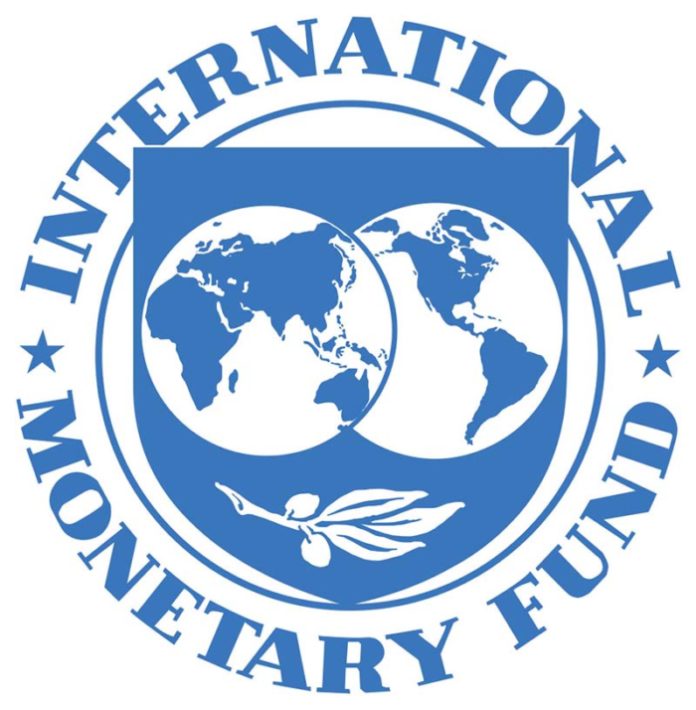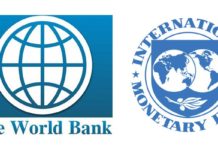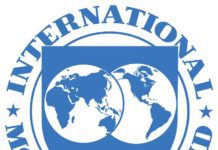
By Mahmud Tim Kargbo
Just like in 1980, the IMF has again imposed significant surcharges on Sierra Leone and other developing countries that have had to undertake large borrowings and are unable to pay their debts back quickly. In this column, I argue that these surcharges are pro-cyclical financial penalties imposed on Sierra Leone and other developing countries precisely at a time when they can least afford them. They worsen potential outcomes for borrowing countries like Sierra Leone and their investors, with gains accruing to the IMF at the expense of the borrowing country and its investors. This transfer of resources to the IMF affects not just the level of poverty, health, education, and overall well-being in Sierra Leone and other developing countries in crisis, but also their potential growth.
In theory, the IMF is supposed to play a critical role in the global economy as a lender of last resort to countries facing dire economic outlooks. When countries opt to seek IMF support, it is typically because they have no other choice. In return, they are forced to surrender some – often considerable – sovereignty over their economic policies.
The theory behind such support is simple: markets are often irrational. Give them time to reflect, combined with some ‘reforms’ within the country, confidence will be restored and a crisis may be averted. But it hasn’t always played out so well, often because the IMF has imposed counterproductive conditionality that leads to economic contraction and because the Fund has failed to impose conditionalities restricting private creditors from quickly pulling their money out of the country. Together, these factors undermine confidence, explaining why so many IMF programmes often fail.
More recently though, a new problem has arisen. The IMF has imposed significant surcharges on Sierra Leone and countries that have had to undertake large borrowings and are unable to pay their debts back quickly. The IMF estimates that borrowing countries like Sierra Leone will pay over $4 billion in extra surcharges on top of interest payments and fees from the beginning of the COVID-19 crisis through the end of 2022 (IMF 2020). These surcharges, payable in hard currency, are imposed on Sierra Leone and other developing countries just at the time when they are typically facing a real shortage of such currency. Surcharges are counterproductive because they are pro-cyclical. To meet the additional foreign exchange requirements, Sierra Leone and other developing countries are forced to take even more contractionary policies, like reducing imports, at enormous costs to society in every dimension, including an increase in poverty. The IMF thus exacerbates the underlying problem.
As a result of the unprecedented economic impacts of the COVID-19 pandemic, these excessive fines are putting a further squeeze on Sierra Leone and most desperate countries precisely when they need to be investing in response and recovery.
Going forward, unless IMF policies change, these surcharges are expected to grow – to the point where they are expected to provide a substantial part of the funding of the IMF’s basic operations. It is ironic that the poorest and most desperate countries should be asked to finance one of the most important global institutions – but one in which their voice carries little weight.
A blow to Sierra Leone, other developing countries and investors
The theoretical design of IMF support is to use low-interest loans and debt restructuring to achieve debt sustainability and resuscitate growth.
In a recent policy brief (Stiglitz and Gallagher 2021), they illustrated how the IMF idea of forcing excessive repayments lowers the productive potential of the borrowing country, but also harms even creditors – a phenomenon with ample evidence in past debt restructurings (Panizza et al. 2009), often leading to more drastic debt reductions within a few years. As pro-cyclical financial penalties are imposed on countries when they can least afford them, surcharges are a further blow to outcomes for borrowing countries like Sierra Leone, its investors, and private creditors, with gains accruing to the IMF at the expense of all.
This transfer of resources to the IMF has especially profound consequences for borrowing countries like Sierra Leone, as it affects not just the level of poverty, health, education, and overall wellbeing in the country in crisis, but also its potential growth and capacity to regain market access.
Surcharges substantially increase the cost of borrowing from the IMF. For the 14 West African countries affected by surcharges, these are estimated to increase IMF borrowing costs on average by 64.1% (Munevar 2021) and effectively double borrowing costs for some. While wealthy countries have been able to spend trillions of dollars in pandemic stimulus to resuscitate their economies, surcharges deter a corresponding response in the countries most in need, fuelling severe divergence in the global recovery.
Middle-income countries (MICs) with lower quotas have been disproportionately affected by these soaring fees at the same time as they are left out of pandemic response initiatives such as the G20’s bilateral debt suspension or the IMF’s debt relief trust. According to the Washington-based Center for Economic and Policy Research (Arauz et al. 2021), Argentina will spend $3.3 billion on surcharges from 2018 to 2023, equivalent to nine times the amount it would have to spend to fully vaccinate every Argentine against COVID-19. The study also finds surcharges are an estimated 45% of all non-principal debt services owed to the IMF from the five largest borrowers.
Penalising the most distressed countries like Sierra Leone for basic support from the world’s critical financial institution will not help the global economic recovery and it undermines the IMF’s mission at a moment of critical need.
Are there justifications for these fines?
The oft-cited rationale for surcharges is to offset the risk of non-repayment, encourage borrowers to pay back ahead of schedule, and limit demand for IMF programmes (IMF 2016). However, these arguments are flawed.
Non-repayment is simply not a common occurrence as a result of the IMF’s preferred creditor status and the central role it plays in the international financial system. There is simply no actuarial basis for these surcharges; the amounts imposed are made up out of thin air. Indeed, additional charges in fact push the dial towards non-repayment by impacting a borrower’s debt sustainability and foreclosing any capacity for early repayment. This is especially true of the contemporary crisis, where so many countries have accrued debt burdens beyond levels they would have normally undertaken.
The argument about disincentivising the use of IMF facilities is also peculiar. There is no automatic right to access the IMF. If the IMF wanted to limit excessive borrowing, it simply need not respond to a country’s request. Besides, few, if any, countries turn to the IMF unless they have to. It is typically a matter of last resort.
The IMF has also claimed surcharges are necessary to support lending to lower-income countries. There is, however, no evidence that IMF’s lending capacity is constrained. Even if it were, it makes no moral or economic sense to place this burden on the countries most in need.
On the other hand, the IMF estimates surcharges have become the Fund’s largest source of revenue (IMF 2020), projected to continue growing as countries suffer. This is a perverse business model for the IMF to pursue, forcing desperate countries to pay disproportionately more for its operations, with the double blow that they continue to be underrepresented in its governing structure.
Of course, it is important to have a well-resourced IMF that is resilient to the anticipated shocks of a climate-changed planet, but regressive and pro-cyclical surcharges will only exacerbate global inequities.
What can be done?
A growing chorus is advocating for the immediate suspension of surcharges, including the G24, current and former UN experts CSOs and most recently, a group of US legislators. Suspending surcharges would provide some breathing room for affected countries and allow time for a fuller review of the surcharges system with a view to eliminating them completely.
Finally, addressing surcharges should lead to broader institutional reform. Regressive surcharges are but one instance in a collection of shortcomings that have been exposed by the international community’s response to the pandemic, which includes vaccine apartheid, a failure to develop an effective response to the looming debt crisis, and inadequate financial support to help resuscitate Sierra Leone and other developing countries economies. Some of these deficiencies have been outright foolish policies that left so much of the world unvaccinated and provided an enhanced opportunity for mutations from which the entire world has suffered. So too, a strong global economic recovery may be impaired if there is economic and political instability in some parts of the world.
The ultimate pandemic lesson is that we need a more resilient economic architecture. Critical parts of the plumbing are in desperate need of a retrofit. The IMF achieved vital milestones in 2021: a historic allocation of Special Drawing Rights, the foundations of a new Resilience and Sustainability Trust and movement towards a debt and climate initiative. Suspending surcharges is an obvious way to build on this progress in 2022, giving the affected countries and the global economy the best chance to recover better and stronger than before.




